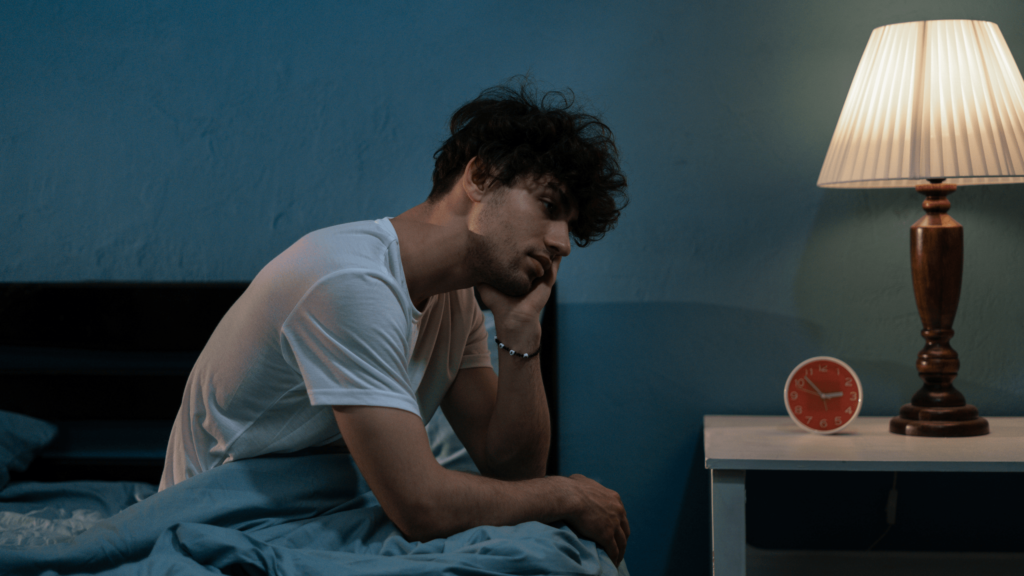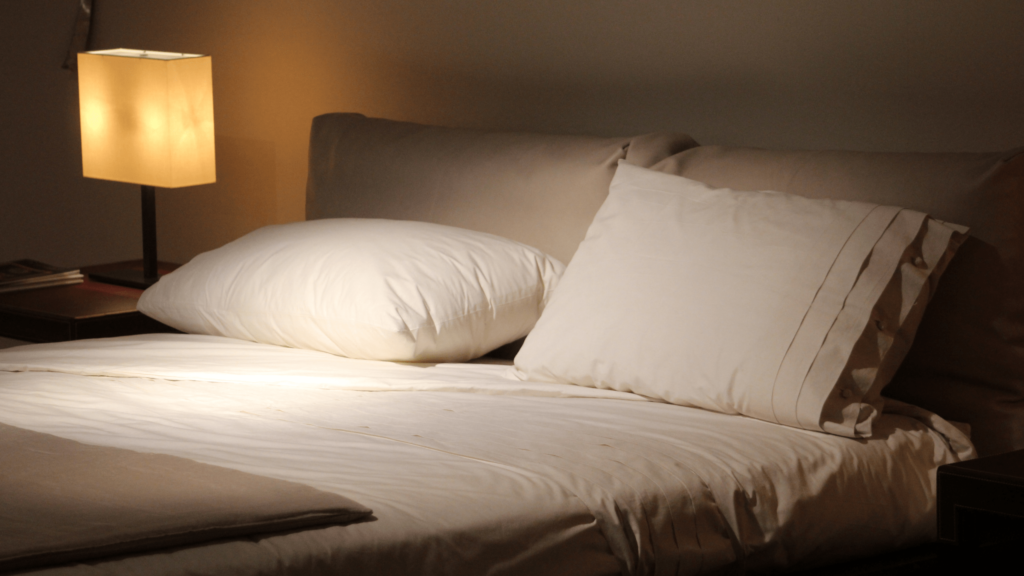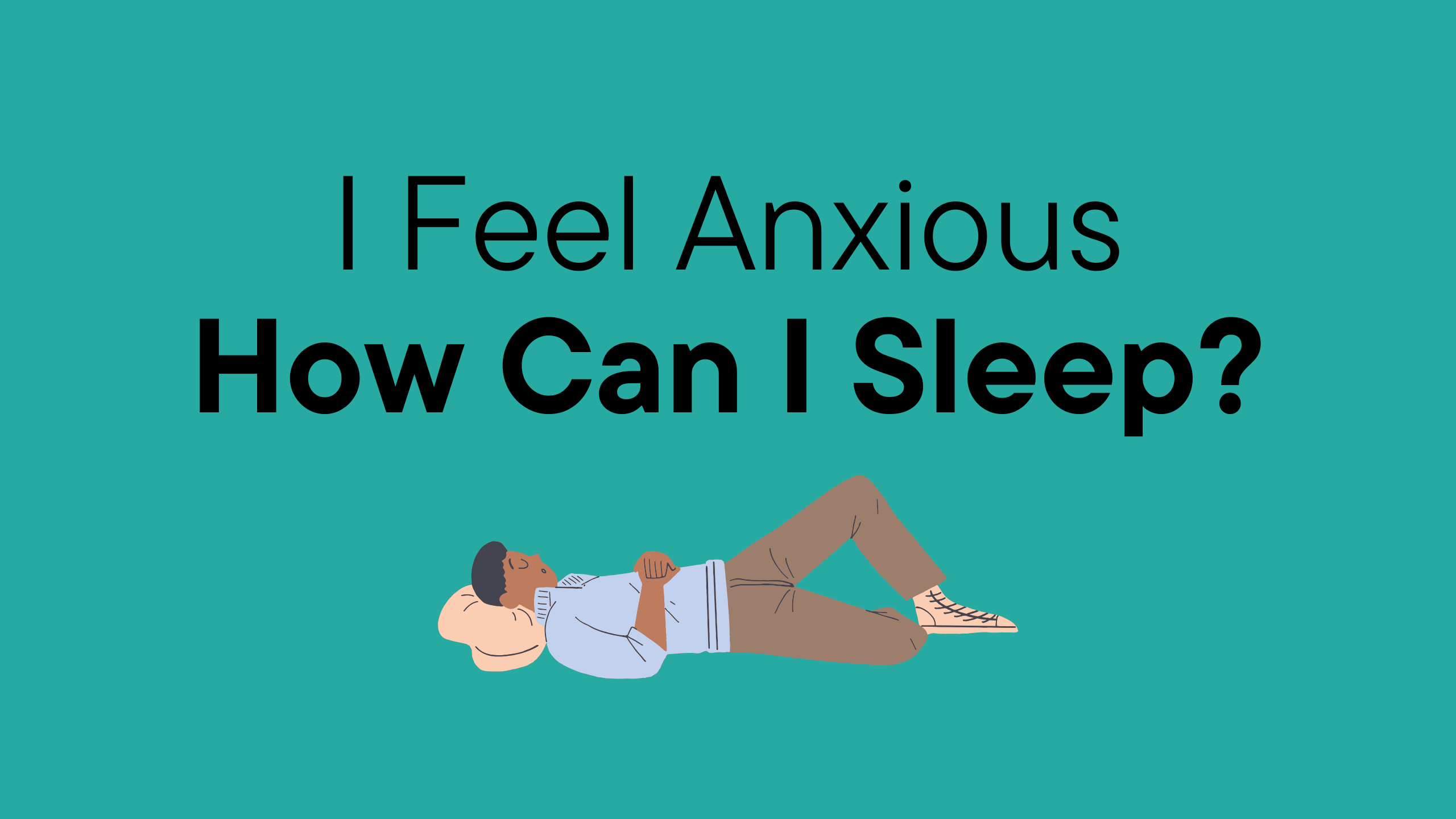- Ağustos 16, 2024
- onurbal
- Yorum yapılmamış
I Feel Anxious. How Can I Sleep?
For many people, bedtime is a welcome escape, a time to unwind and recharge after a busy day. However, if you struggle with anxiety, the quiet of the night can often amplify your worries. If you’ve ever found yourself lying in bed thinking, “I feel anxious. How can I sleep?” you’re not alone in this experience.
Dealing with anxiety during the day is challenging enough, but when it follows you into the night, it can make falling asleep seem impossible. When anxiety keeps you awake night after night, the lack of sleep can feel unbearable. Unfortunately, this can create a vicious cycle: anxiety disrupts your sleep, and lack of sleep, in turn, heightens your anxiety.
Fortunately, there are ways to break free from this cycle. In this article, we’ll explore the connection between anxiety and sleep, and provide practical tips to help you achieve the restful sleep you need, even when anxiety threatens to keep you awake.
I Feel Anxious. How Can I Sleep? The Science Behind Anxiety and Sleep
To understand why anxiety affects sleep, it’s helpful to know a bit about how sleep works.
Sleep is the result of two opposing forces. The first is known as sleep pressure. The longer you stay awake, the more this pressure builds, making you feel increasingly tired. After about 16 hours of being awake, you’ll naturally feel sleepy. If you go a full 24 hours without sleep, the pressure becomes even stronger, and after 72 hours, staying awake becomes nearly impossible.
The second force works to keep you awake. This alerting signal is regulated by your internal clock, or circadian rhythm, and fluctuates throughout the day. It peaks during the day, helping you stay alert, and gradually diminishes in the evening, allowing sleep pressure to take over and guide you to sleep.
Why Does Anxiety Keep Us Awake?
The alerting signal that keeps you awake shares many of the same neurochemicals that are activated by anxiety. This response likely evolved as a survival mechanism, ensuring that when we feel threatened or anxious, we stay awake and alert to deal with potential dangers. But in our modern world, where threats are more psychological than physical, this response can backfire, keeping us awake long after the danger has passed.
So if you find yourself thinking, “I feel anxious. How can I sleep?” it’s because your brain is activating this alert system in response to your anxiety, making it difficult to relax and fall asleep.

The Consequences of Sleep Deprivation
According to the Centers for Disease Control and Prevention, adults need between 7-9 hours of sleep each night to feel fully rested and functional the next day. While individual sleep needs can vary—some people function best with closer to nine hours, while others do well with just seven—it’s important to aim for this range.
Occasional sleepless nights happen to everyone, but consistently getting less than seven hours of sleep, or having fragmented sleep, is associated with a range of health risks, including:
- High blood pressure, heart attack, and stroke
- Obesity
- Diabetes
- Increased anxiety, depression, or irritability
- Poor coordination, leading to accidents
- Memory problems, difficulty concentrating, and impaired learning
Sleep is often referred to as one of the three pillars of health, alongside nutrition and exercise. To maintain optimal health, it’s crucial to keep all three in balance. If you’re asking yourself, “I feel anxious. How can I sleep?” addressing your anxiety is key to improving not just your sleep, but your overall health and well-being.
How to Tell the Difference Between Anxiety and Sleep Disorders
Anxiety and sleep disorders often go hand in hand, which can make it difficult to determine which issue started first. It’s essential to uncover the underlying cause of your sleep difficulties, especially since sleep disorders triggered by anxiety, such as insomnia, can linger even after the anxiety is managed. Similarly, sleep disorders that cause anxiety can leave residual anxiety, even after the sleep problem has been treated.
Understanding the relationship between anxiety and sleep disorders is crucial in finding the right approach to treatment. Let’s explore some common sleep disorders that are closely linked to anxiety:
Sleep Anxiety
Unlike general anxiety that disrupts sleep, sleep anxiety is specifically focused on the act of sleeping itself. Individuals with sleep anxiety often worry about their ability to fall asleep or stay asleep, or they may fear experiencing nightmares, sleepwalking, or sleep paralysis. Some even dread waking up gasping for air due to sleep apnea.
When these anxieties persist night after night, it can lead to a phenomenon known as “bedtime dread.” People with sleep anxiety might not feel anxious during the day, but as the thought of going to bed approaches, their anxiety significantly increases.
Insomnia
Insomnia can be either acute or chronic. Acute insomnia typically lasts less than three months and is often tied to stressful life events. Chronic insomnia is diagnosed when sleeplessness occurs at least three nights a week for three months or longer. Anxiety that keeps you awake frequently can trigger acute insomnia, which may eventually turn into a chronic condition if not addressed.
Nocturnal Panic Attacks
Nocturnal panic attacks involve waking up suddenly in a state of intense panic. These episodes are often accompanied by symptoms such as sweating, trembling, shortness of breath, and a racing heart. Recovering from a nocturnal panic attack can be challenging, and the fear of another attack can make it difficult to fall back asleep.
Nocturnal panic attacks are relatively common among those with panic disorder. Studies show that up to 71% of individuals who experience daytime panic attacks have also had at least one nocturnal panic attack.
What Steps Can You Take?
A productive first step is to schedule an appointment with a primary care doctor or clinician. Primary care doctors can diagnose and treat a wide variety of conditions and can refer you to specialists in mental and behavioral health or sleep medicine if needed.
Determining whether anxiety or a sleep disorder is the primary issue can lead to more targeted and effective treatment. By addressing the root cause, you can work towards better sleep and a calmer, more balanced mind.
Tips on How to Calm Anxiety for Better Sleep
When you’re feeling anxious, falling asleep can seem like an impossible task, no matter how exhausted you are. It’s important not to get frustrated with yourself or the situation, as that can only heighten your anxiety. Instead, try incorporating some of the following strategies to help you relax and drift off to sleep.
Practice Relaxation Techniques
Relaxation techniques can help reduce the tension in your body, allowing sleep to come more naturally. Here are some methods you can try:
- Breathing Exercises: Focusing on your breath can be a soothing way to ease into sleep. Try deep belly breathing, which engages your diaphragm instead of your chest and neck muscles, to pull air deep into your lungs. Alternatively, you can try the 4-7-8 technique, where you inhale through your nose for 4 seconds, hold your breath for 7 seconds, and then exhale slowly through your mouth for 8 seconds.
- Progressive Muscle Relaxation: Anxiety often leads to muscle tension. Progressive muscle relaxation involves tensing and then releasing specific muscle groups, like your neck, shoulders, and legs, one by one, to relieve physical stress.
- Guided Imagery: When trying to fall asleep, visualize yourself in peaceful and calming settings rather than stressful ones. Whether it’s lounging on a beach, sitting in a meadow, or strolling through a forest, choose a scene that helps you feel most at ease.
- Meditation: Meditating before bed can help quiet your thoughts and relax your body, making it easier to fall asleep naturally. If you’re unsure where to begin, there are many guided meditations available online to help you start.
- Yoga: Yoga is beneficial for both your physical and mental health at any time of day. However, look for routines specifically designed to be done before bed to help your mind and body wind down. There are even yoga poses you can perform right from your bed.
- Constructive Worry: Set aside some time in the evening, well before bed, to think about the things that are bothering you. Use this time to approach your concerns in a positive and productive way, focusing on solutions rather than just the problems.
Keep a Notebook by Your Bed
The stillness of a dark bedroom can sometimes cause your mind to race. Thoughts that were pushed aside during the day can resurface with intensity.
To help manage these thoughts, keep a notebook or notepad by your bed for a nightly journaling session. Use this space to reflect on your day, jot down to-do lists, plan upcoming tasks, and leave reminders for yourself. Writing down your thoughts can help clear your mind, making it easier to fall asleep.
Spend Time Outdoors
Research increasingly shows that spending time in nature offers numerous health benefits. Exposure to natural light during the day reinforces your body’s circadian rhythm, or sleep-wake cycle. Getting sunlight, especially in the morning, helps you stay alert during the day and promotes better sleep when night falls.
Outdoor activities such as walking, cycling, or playing with your children also provide great opportunities to relieve stress and anxiety, making you more likely to feel tired and ready for bed at night.
Create a Sleep-Friendly Environment
To give yourself the best chance for a good night’s sleep, ensure your room is dark, cool, and quiet before you go to bed. If your room is too quiet or if you need to drown out other noises, consider using a fan or a white noise machine.
Taking a few minutes each night to tidy up your sleep space and prepare for the next day can also be helpful. Laying out your clothes, clearing off your desk, and organizing your nightstand can make you feel more settled and organized, both physically and mentally.
Don’t Stay in Bed if You Can’t Sleep
It might seem counterintuitive, but if you’ve been trying to fall asleep for more than 20 minutes without success, it’s better to get out of bed. Engaging in a relaxing activity like reading, drawing, knitting, or crocheting can help calm your mind. Once you start feeling sleepy, head back to bed.
Avoid using your bed for activities other than sleep, such as eating, working, or watching TV shows. By reserving your bed strictly for sleep, your mind will begin to associate it with rest, helping you fall asleep more quickly when you lie down.
Other Helpful Sleep Tips:
- Maintain a Consistent Sleep Schedule: Try to wake up and go to bed at the same time every day, even on weekends.
- Limit Screen Time Before Bed: The blue light emitted by electronic devices can mimic daylight and disrupt your circadian rhythm. Put away screens at least an hour before bedtime.
- Skip Naps: No matter how tired you feel during the day, it’s better to catch up on sleep at night rather than taking an afternoon nap. Napping can throw off your sleep schedule and keep you awake much later than you’d like.

Tips on How to Calm Anxiety for Better Sleep
When you’re feeling anxious, falling asleep can seem like an impossible task, no matter how exhausted you are. It’s important not to get frustrated with yourself or the situation, as that can only heighten your anxiety. Instead, try incorporating some of the following strategies to help you relax and drift off to sleep.
However, if you find that these tips alone aren’t enough to alleviate your sleep difficulties, Psychologist Onur Bal offers specialized therapy packages designed to address anxiety-related sleep issues. With years of experience in helping individuals overcome anxiety and improve their sleep, Onur Bal’s therapy packages provide personalized strategies to help you achieve the restful sleep you need.
Practice Relaxation Techniques
Relaxation techniques can help reduce the tension in your body, allowing sleep to come more naturally. Here are some methods you can try:
- Breathing Exercises: Focusing on your breath can be a soothing way to ease into sleep. Try deep belly breathing, which engages your diaphragm instead of your chest and neck muscles, to pull air deep into your lungs. Alternatively, you can try the 4-7-8 technique, where you inhale through your nose for 4 seconds, hold your breath for 7 seconds, and then exhale slowly through your mouth for 8 seconds.
- Progressive Muscle Relaxation: Anxiety often leads to muscle tension. Progressive muscle relaxation involves tensing and then releasing specific muscle groups, like your neck, shoulders, and legs, one by one, to relieve physical stress.
- Guided Imagery: When trying to fall asleep, visualize yourself in peaceful and calming settings rather than stressful ones. Whether it’s lounging on a beach, sitting in a meadow, or strolling through a forest, choose a scene that helps you feel most at ease.
- Meditation: Meditating before bed can help quiet your thoughts and relax your body, making it easier to fall asleep naturally. If you’re unsure where to begin, there are many guided meditations available online to help you start.
- Yoga: Yoga is beneficial for both your physical and mental health at any time of day. However, look for routines specifically designed to be done before bed to help your mind and body wind down. There are even yoga poses you can perform right from your bed.
- Constructive Worry: Set aside some time in the evening, well before bed, to think about the things that are bothering you. Use this time to approach your concerns in a positive and productive way, focusing on solutions rather than just the problems.
If these techniques resonate with you, Psychologist Onur Bal’s Anxiety and Sleep Therapy Package offers in-depth guidance on how to effectively incorporate them into your nightly routine. This package includes one-on-one sessions that focus on understanding the underlying causes of your anxiety and providing personalized strategies to improve your sleep quality.
- Limit Screen Time Before Bed: The blue light emitted by electronic devices can mimic daylight and disrupt your circadian rhythm. Put away screens at least an hour before bedtime.
- Skip Naps: No matter how tired you feel during the day, it’s better to catch up on sleep at night rather than taking an afternoon nap. Napping can throw off your sleep schedule and keep you awake much later than you’d like.
To further personalize these strategies to your specific needs, Psychologist Onur Bal’s therapy packages offer comprehensive support and guidance, helping you achieve the peaceful, restorative sleep you deserve.
